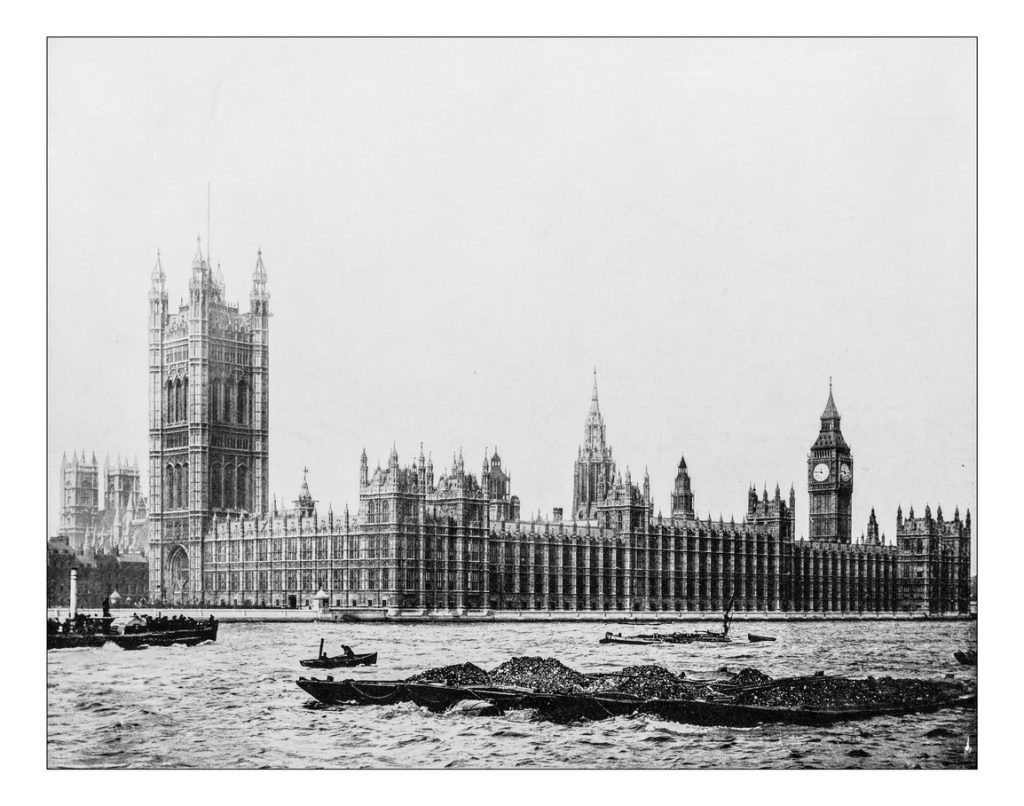Dr Ian Cawood, Associate Professor in History, Faculty of Arts and Humanities
Dr Ian Cawood explores the findings of a conference funded by the British Academy which looked at why the quality of governance in the UK seemed to improve dramatically between 1800 and 1900.
Historians working on the campaigns against civic corruption in modern Britain have tended to focus on three issues: the campaign against ‘old’ (or political corruption) in Britain until 1832; the impact of the Northcote-Trevelyan report of February 1854; and the elimination of corruption in local government at the end of the nineteenth century.
The Oxford conference was organised to explore systematically the means whereby corrupt behaviours such as patronage, misuse of public office and the pursuit of personal gain were gradually challenged by a more meritocratic ethos in the public administration of modern Britain. The concept of a ‘public service ethos’ in administration has only recently attracted historical attention as, previously, studies of public institutions merely emphasised the growing ‘professionalism’ of the public services in Britain in the nineteenth century, as if the behaviours required by public servants were value-free and uncontested.
Some of the key themes which emerged from the conference were
1) The significance of the period between 1780 and 1830 in which a dominant discourse of mutual benefit among elites was replaced by an emphasis on ‘the common good’, ‘unselfish government’ and ‘Christian virtue’ by critics of the governing classes which gained traction among the wider public and formed a central aspect of the reforms to the Old Constitution after 1832.
2) The series of crises of governance, most notably the failures in the Crimean War of 1853-56, which, when reported by the press, were ascribed by critics to the failure to expunge fully the ‘culture of corruption’ and which led to a wave of anti-corruption drives throughout the Victorian period and into the twentieth century.
3) The significance of the ethical training and personal probity of ‘principal agents’ who could act as conduits of good governance and models of public service in particular bodies in particular locations: a form of ‘contagious virtue’. It was noted that such training tended to emerge from the Scottish universities, the nonconformist Churches, European examples, evangelical politicians and Benthamite philosophers.
4) The failure of key elements of the British establishment to accept the need for such ethical training among cultural influencers, such as Church leaders, University tutors and politicians, at Westminster, the provinces and across the Empire. The consequence of this failure was the haphazard and sporadic nature of anti-
corruption across the nineteenth century and the persistence of privilege, patronage and patrimony in the British polity and public administration.
5) If virtuous government, created by an institutionalised system of meritocracy was one of the key aims of Victorian liberalism, one must conclude that, in this respect at least, the project failed and Britain at the start of the twentieth remained firmly in the grip of privately educated, Oxbridge graduates who had a very narrow understanding of the social and economic conditions in which the bulk of the British nation subsisted. This has proved an intractable failure of the British political class since that time. How does this relate to the present day? A closing panel of experts reflected on contemporary challenges and what might be learned from the past. The panel included Anneliese Dodds (Oxford East MP); Robert Barrington, (then Executive Director of Transparency International UK); Rosemary Carter (Ofqual); Andrew Feinstein (Founding Director of Corruption Watch); and Oonagh Gay (Senior Researcher in the Parliament and Constitution Centre). The panellists agreed that although significant progress had been made over the course of centuries, corruption remains a significant problem. They assessed that it was not just that corruption continued to be practised by unscrupulous officials, ministers, MPs and businessmen, but that the very suspicion that those who hold public office were corrupt, served to undermine public trust in democratic governance, which itself was hugely damaging.
Among the key findings highlighted by the panellists were:
1) Electoral corruption was widespread before 1880, but improved significantly with the introduction of new laws and mechanisms of electoral oversight.
2) Personal probity and discipline of those in public office is a crucial guard against corruption, beyond the existence of rules and codes of conduct.
3) Corruption flourishes in an environment where public and private interests are allowed to mix, without adequate or robust administrative and public oversight.
4) Significant anti-corruption reform has been stimulated by high poverty and inequality, and as a reaction to political crises such as that which resulted in the widening of the franchise in 1832.
The panel concluded that the current issue of Brexit might prove to be a similar crisis to that of 1832, but that it also carries considerable perils, not least because it might prompt Britain to lower its standards of corporate transparency and public tendering and procurement in pursuit of favourable trading relation with other nations where standard of public life are less regulated or insufficiently monitored.
A full transcript of the plenary discussion – including the full comments on illicit financial flows, money laundering and lobbying made by Anneliese Dodds, the recently-appointed shadow Chancellor – can be found here.
Dr Cawood and Professor Barrington now intend to organise a series of symposiums across Europe to investigate the transnational history of anti-corruption, exploring the reasons for the emergence of and increasingly impartial, neutral and altruistic public service in a series of northern and western states between 1800 and 1880. Designed for academics, students, policy-makers, civil servants and other stakeholders, these events will provide a forum for discussing what lessons we can learn from history when trying to reduce corruption in modern administrative systems.
Please contact Dr Cawood at ian.cawood@stir.ac.uk if you wish to find out more or participate in one of these events.
This post first appeared on the Centre for the Study of Corruption blog, hosted the University of Sussex, on 7 May 2020.

